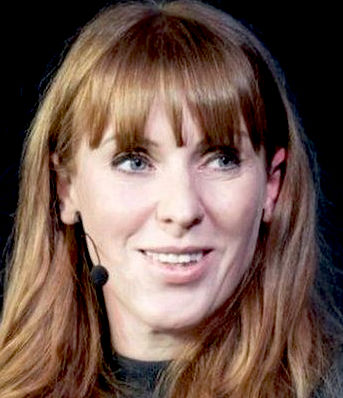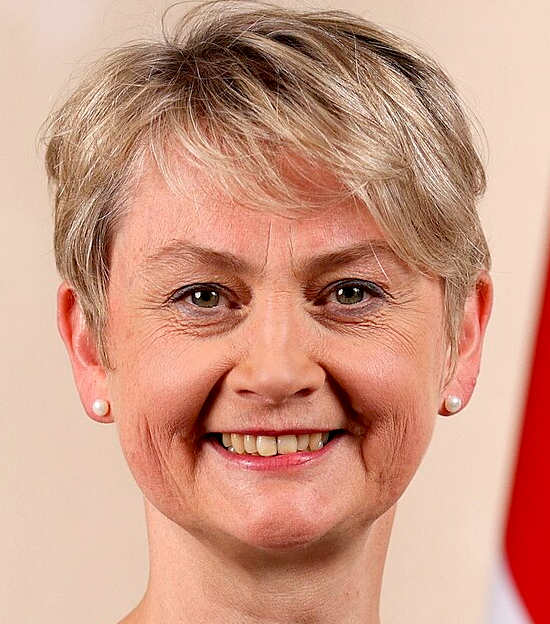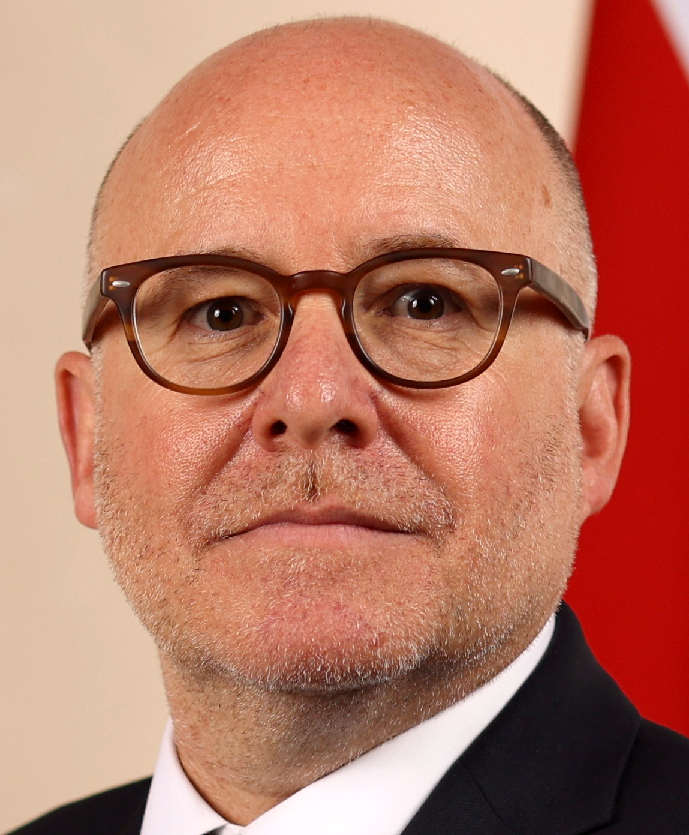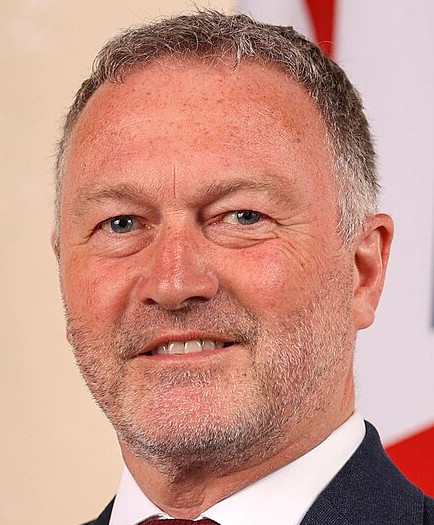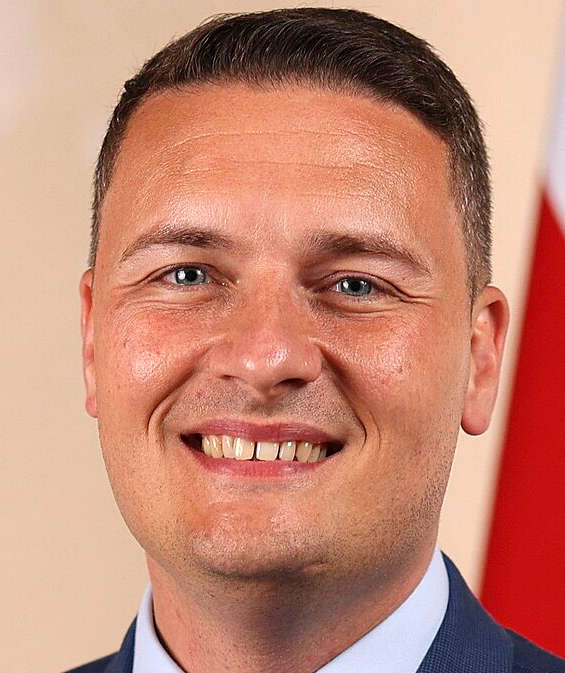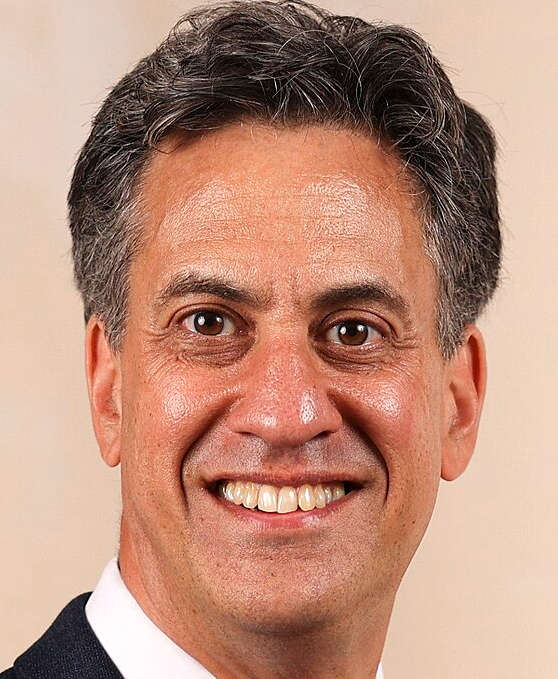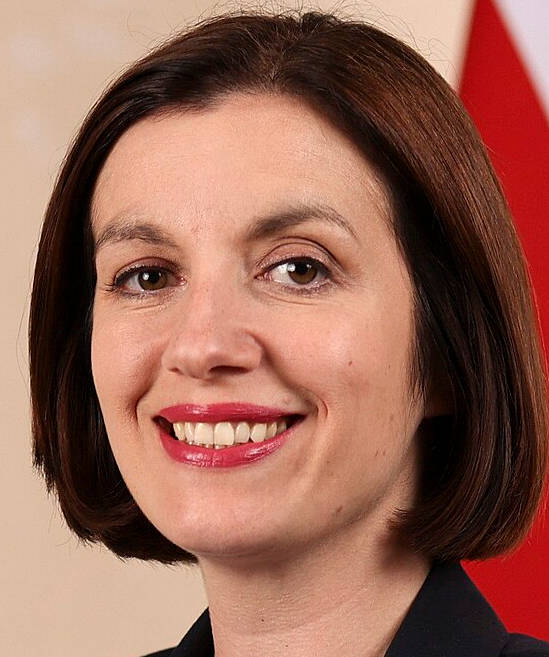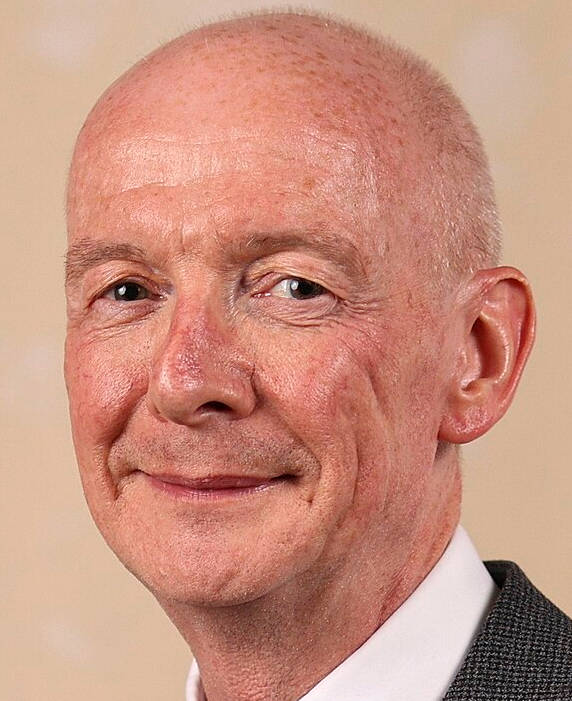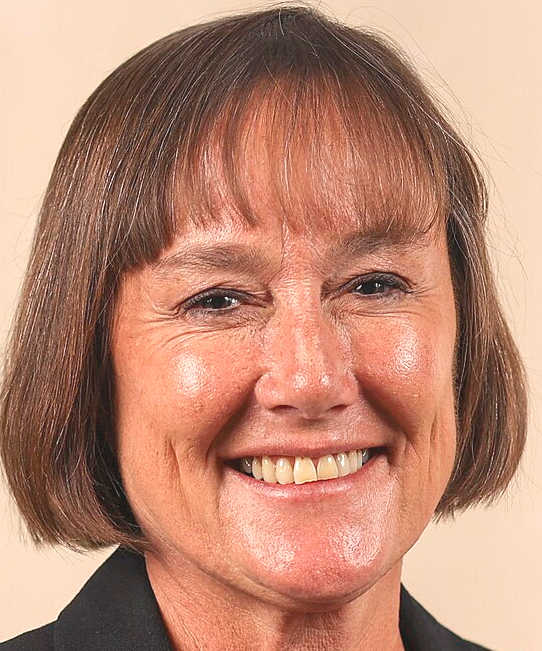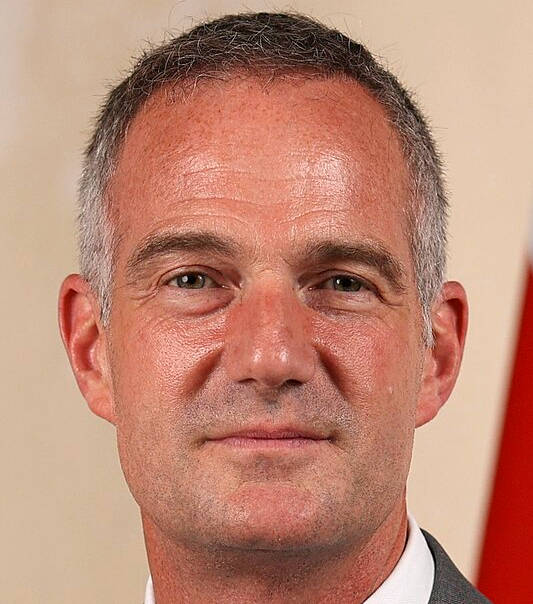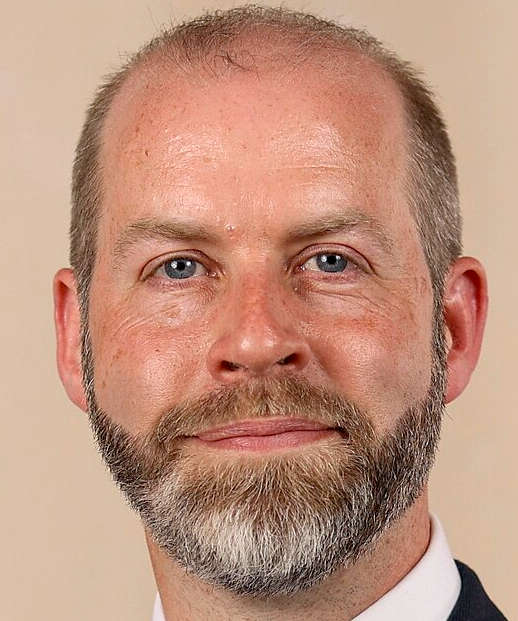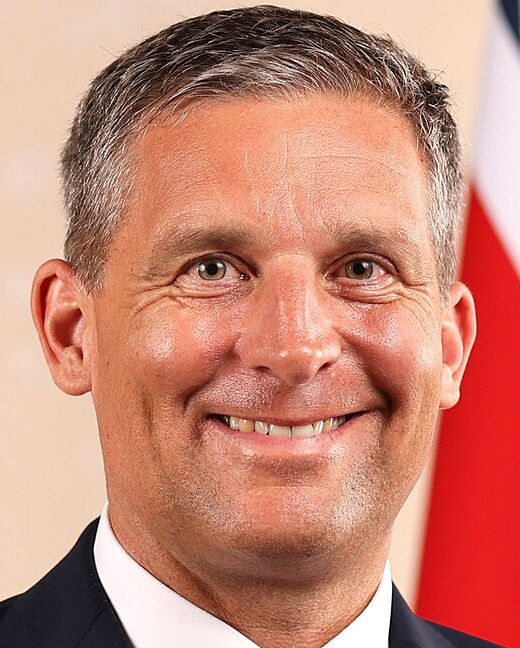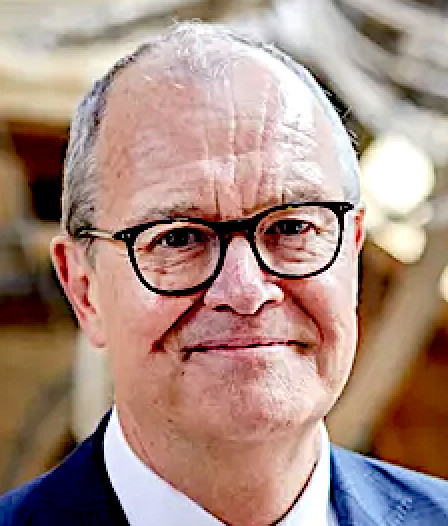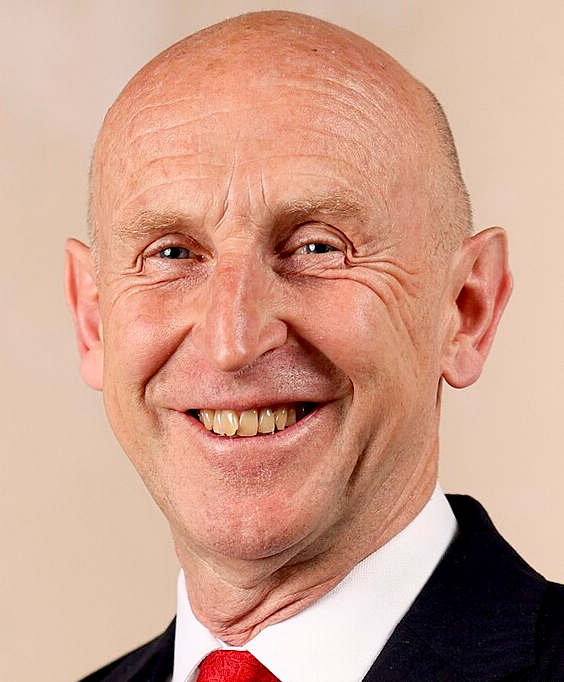
John
Healey - Secretary of Defense
JOHN HEALEY
John Healey was first elected to Parliament as the MP for Wentworth in 1997, and went on to serve in both the Blair and Brown governments.
He has also been a prominent figure in opposition, serving as the shadow secretary of state for health, housing and defence under Mr Miliband, Mr Corbyn and Sir Keir respectively.
Before his political career, Mr Healey worked in the charity sector and served as the campaigns director for the Trades Union Congress for three years.
John Healey was appointed Secretary of State for Defence on 5 July 2024. He was elected as the MP for Rawmarsh and Conisbrough in July 2024.
The Secretary of State for Defence has overall responsibility for the business of the department.
Responsibilities include:
- strategic operations and operational strategy, including as a member of the National Security Council
- defence planning, programme and resource allocation
- strategic international partnerships: US,
France,
Germany,
Saudi Arabia and the Gulf,
NATO
- nuclear operations, policy and organisations
- strategic communications
Previous holders of this role
The Rt Hon Grant Shapps - 2023 to 2024
The Rt Hon Ben Wallace - 2019 to 2023
The Rt Hon Penny Mordaunt - 2019 to 2019
The Rt Hon Sir Gavin Williamson CBE - 2017 to 2019
The Rt Hon Sir Michael Fallon - 2014 to 2017
The Rt Hon Philip Hammond - 2011 to 2014
The Rt Hon Liam Fox - 2010 to 2011
As Shadow Secretary of State for Defence, Healey has repeatedly stressed his support for Ukraine in the Russo-Ukrainian war since
Russia's invasion in 2022, endorsed the UK's support for
Ukraine, and committed to continue Britain's support for Ukraine in any future Labour government. In May 2024, Healey visited Kyiv along with Shadow Secretary of State for Foreign,
Commonwealth and Development Affairs David Lammy and met the head of the President's Office Andriy Yermak and Defence Minister Rustem Umerov. In a joint statement, Healey and Lammy stated: "The next Labour government's commitment to
Ukraine will be ironclad, and European security will be our first foreign and defence priority."
Healey has argued in favour of higher spending on the British military with a larger armed force, closer co-operation and leadership with
NATO and European nations over security and defence matters, and for a "comprehensive UK-Germany defence and security pact". Healey has said that
NATO will need to do more "heavy-lifting' in Europe, as the winner of the 2024 US Presidential Election is likely to prioritise the threat of
China.
In April 2024, Healey committed to raising Britain's defence spending to 2.5% of Britain's GDP by 2030 and commissioning a strategic review of the threats to Britain and its capabilities.
NORTH ATLANTIC TREATY ORGANIZATION
Seventy-five years ago, British foreign secretary Ernest Bevin had the vision and determination to bring 12 nations from Western Europe and North America together to create the North Atlantic Treaty Organization (NATO).
Today, the NATO alliance spans 32 nations. Thirty-two allies committed to the key principle that an attack on one is an attack on us all.
This, as Bevin said, “brings us under a wider roof of security, a roof which stretches over the Atlantic Ocean and gives us the assurance of great preponderance of power, which will be used on the side of peace [and] security”.
This week, we are travelling with the Prime Minister to Washington
DC, joining our allies in marking this 75th anniversary. And we meet at a time of unprecedented volatility and insecurity. The whole alliance faces rising global threats – both conventional and hybrid. With authoritarianism and greater geopolitical competition on the one hand, and rapid technological development on the other.
The first duty of any government is to keep the country safe and protect its citizens. We cannot have stability and prosperity without security. NATO is therefore the ultimate guarantor of all allies’ ability to live freely and build a secure, more prosperous future for their people.
Ernest Bevin brought 12 nations from Western Europe and North America together 75 years ago to create NATO.
Our government’s commitment to NATO is therefore unshakeable. We will have a ‘NATO first’ defence strategy. European security will be our foreign and defence priority. Our commitment to Britain’s nuclear deterrent is absolute.
We will increase spending to 2.5% of GDP on defence as soon as possible, whilst arguing all NATO allies should adopt this as a new defence target. And we will launch a Strategic Defence Review, so we are fighting fit to defend against any adversary.
Foremost amongst these adversaries is Russia. We must strengthen our defences to deter Putin effectively. And we must reinvigorate our support for the brave people of Ukraine, as they defend their freedom against
Vladimir
Putin’s new form of fascism.
Before the general election, we both travelled to Kyiv and assured the Ukrainians of our ironclad commitment in person.
But Britain is always stronger when we work with others. That is why we want to reset our relations with Europe. With a return of war to our continent and security threats rising, Britain must also restore trust to our partnership with our closest neighbours. This includes new security and defence agreements with close allies and partners in Europe, such as Germany.
We have underlined this commitment within days of being appointed by our new Prime Minister Keir Starmer, with John travelling to Ukraine and David visiting Germany,
Poland and
Sweden.
On these visits, our new government has increased support for Ukraine, including new military support –- a clear signal of our determination to outlast the
Kremlin.
And we have begun discussions about how we can do more with European partners. Bilaterally, we will leverage our tightly connected defence industries to strengthen our defences and support Ukraine. And our plan for an ambitious and broad-ranging UK-EU Security Pact would underpin closer cooperation between us, enshrining a new geopolitical partnership that complements the wider NATO alliance.
As we, alongside Keir Starmer, look to reconnect Britain on the world stage, we will be fully committed to strengthening other alliances that enhance
British security in this increasingly insecure world. We will ensure AUKUS, the trilateral security partnership with
Australia and the
United
States, fully delivers its potential.
As negotiations on NATO concluded, Bevin forecast that “the step that is now being taken will bring peace and security… for many generations to come”. How right he was. His vision has grown into the most successful peacetime military alliance in the world.
Our generation faces a darkening global landscape. Those who believe in freedom and international law must stand together, stand for what’s right – just as Bevin did 75 years ago.
This requires a strong and reconnected Britain. Under our government, Britain will be confident in our purpose, clear-eyed about the challenges and determined to invest in our collective strength. A formidable and reliable ally and partner. A country building the foundations of an era of renewal. The spirit of Bevin will live on in this new government.
METRO 9 JULY 2024 - UK FACES
WWIII IN 'FIVE
YEARS' IF IT DOESN'T RE-ARM
There is a risk of a World War Three-style global conflict – within five years – if Nato does not wake up from its military slumber, the outgoing head of the British army has warned.
General Sir Patrick Sanders said Western powers would enter Vladimir Putin’s trap by the end of the decade by not re-arming themselves.
He described Russia, Iran and China as ‘the new Axis powers’, stressing that they pose an even greater threat than
Nazi
Germany.
In an interview with The Times, the general said: ‘Most estimates will tell you that we have somewhere between five and 10 years before Russia recapitalises and is able to pose the sort of threat that it did before the Ukraine war.’
Putin may order operations before then that are ‘just below the level of conflict’ or ‘seize some territory opportunistically’, he added.
Sir Patrick said: ‘If we take the right steps now, if we address the threats and gaps we have in our capability, if we modernise our armed forces, if we make society and the UK more resilient, that is how we prevent it.’
Under his assessment, the British military is no longer strong enough to undertake a conflict like the 2003 invasion of
Iraq.
His warning comes in time as Sir Keir Starmer will depart for Washington today for the 75th anniversary of the
Trans-Atlantic alliance this week.
In its manifesto, the Labour Party has committed to spending 2.5% of GDP, when the economy is in a better place.
But military sciences director at RUSI, Matthew Savill, urged the new government to make decisions sooner rather than later if it does not want to face becoming ‘hollow’.
Like general Sanders, he identified a ‘rogues gallery of state threats’, with Russia and China in the vanguard,
Iran and
North Korea following close behind.
Non-state groups like Yemen’s Houthi movement are filling in the gaps.
In the case of firepower and destructive force, ‘numbers do matter’, Mr Savill said, explaining further: ‘The trend of the past 35 years has been to trade numbers for sophistication, but this has overall led to a diminution of total firepower.
[Sherman and T34 against Tiger and King Tiger
tanks in WWII,
the Germans were overwhelmed]
‘The UK can do some things well, but not at a particularly impressive scale when the adversary is a state with significant military power of its own which is prepared to suffer losses.
‘Even a recent defence secretary admitted that the forces had been “hollowed out” over a period of years.’
RUSI experts assess that for the army to deploy a single armoured brigade would require the commitment of around 70 to 80% of its total combat engineering capabilities in order to cross
rivers or to breach minefields.
Mr Savill added: ‘The notion that the UK has enough to properly deploy a full division is fanciful.’
As an example, he gave the Challenger 3, which may be the ‘most lethal tank’ ever fielded by the British Army,
But it is going to be available in such limited numbers that it will have to perform ‘heroically’ in the face of Russian ground forces, for example.

FOSSIL
FOOLS - Geriatric politicians with 'climate-senile' policies will
find in difficult to break away from their corrupt ways, as part time
politicians with two jobs. Their main job being to find paid consultancy
work, rather than craft policies and create statute that works to
protect our voters from lung
cancer, energy shortages and a lack of affordable (sustainable)
housing.
The
'zerophobics' are the undertakers of the political world, sending
millions of ordinary people to an early grave, while loading us with NHS,
hospital and staff costs that would not be needed if we had clean air in
our cities.
Basically,
the longer you are in politics, the more likely you are to be exposed to
bribes, from climate
deniers, mostly fossil fuel and energy companies, looking to keep on
pumping toxic fumes into the atmosphere, so they can keep making money.
The political undertakers are working with them to keep hospitals
stocked with cancer victims, adding to the £Trillions we owe as part of
the national debt. Under Boris and Rishi Sunack, pensioner's saving have
halved in real terms. They are blood sucking vampires, draining what
little you had saved for your retirement.
CONTACT
SIR KEIR & HIS CABINET
Westminster Office
House of Commons
London, SW1A 0AA
Tel: 020 7219 5437
SIR
KEIR STARMER'S LABOUR PARTY CABINET 2024
UK
POLITICS
CONSERVATIVE
PARTY
CO-OPERATIVE
PARTY
DEMOCRAT
UNIONIST PARTY
GREEN
PARTY
LABOUR
PARTY
LIBERAL
DEMOCRATS
PLAID
CYMRU
REFORM
UK
SCOTTISH
NATIONAL PARTY
SINN
FEIN
SOCIAL
DEMOCRATIC AND LABOUR PARTY
UK
INDEPENDENCE PARTY
ULSTER
UNIONIST PARTY
LINKS
& REFERENCE
https://www.



